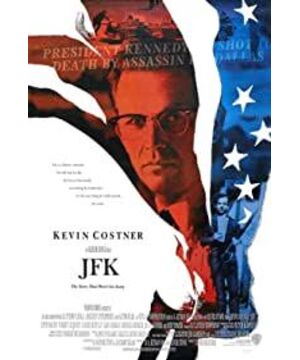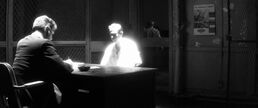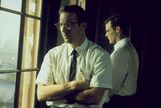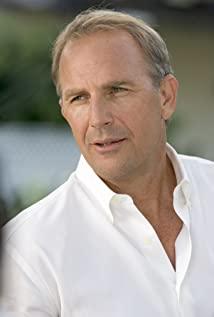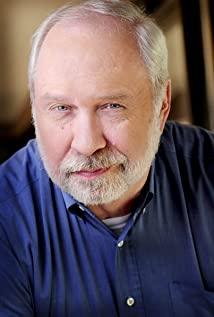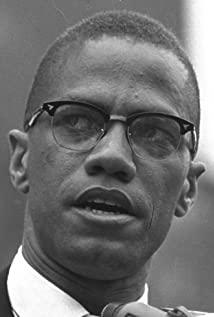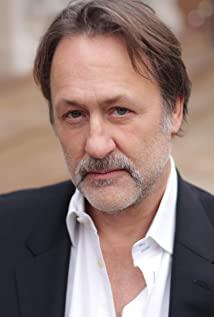However, I watched the three-and-a-half-hour long film with great interest and patience, and I didn't feel sleepy at all. This is of course because, one, the storyline is excellent; two, the skill of the film arrangement. Speaking of which, I can't help but admire the talent of the director of this film, Oliver Stone. Although this is only his first play I've seen, I can build up a lot of confidence in this golden sign since then.
Compiling historical TV shows is difficult. As Lao Luo said, a strong historical sensitivity is required. Because this is not a topic of life, it can be talked about anywhere. Generally, as long as the screenwriter's mind is not flooded, there will be basically no obvious mistakes. But historical films are different. It involves a wide range of areas, and because it involves history, it will inevitably be stared at by many people. Among them, there are not only history lovers, but even good people. And from the perspective of being responsible for the public's audio-visual, it really does not dare to talk nonsense, and can't talk nonsense. Therefore, the usual practice, or the past practice, when shooting historical movies or TV series, the crew will always hire one or more, full-time or part-time historical consultants as supervisors, to supervise whether there are any major flaws in the direction in principle, so as to avoid unintended consequences. Be careful laughing. But why is it said to be the past practice, because the word "joking" has been added over the years. No matter what, as long as you put a joke on it, then you will not be able to grasp the reason for it. Doesn't it all say that it's a joke, you can just watch it all the time. In short, let you not take it seriously and watch it pull down. It is difficult for us to make a judgment on this issue of whether it should be joked or not. Let's see how Americans "joking" about history. And it's not too long ago. Even U.S. officials have kept it secret. Therefore, the difficulty is evident.
But no matter how hard it was, Oliver Stone did it all with such precision. Although I, like most of the people around me, don’t know anything about the history of the United States after World War II, I only know what happened, and I don’t even know what year it happened. As for the well-known Kennedy family, our impression of him is limited to the lace unofficial history, and most of them are still dipped in the light of Monroe. Therefore, when watching this film, I can only accept the interpretation of the plot in its entirety, and there is no possibility of criticism and consideration at all. But even so, from another aspect, I also believe in the inference of Lord Austria. From a long time ago, when I knew that Kennedy was assassinated, I felt that it would definitely not be as simple as a simple assassination. The propaganda activist Oswald single-handedly carried out this amazing act, which I think is a bit untenable. Does the CIA eat dry food? Does the FBI eat dry rice? Of course, there are different eras and countries, but the key is to see who it is. For the president, a group of bodyguards who are traveling and secretly protected by CIA agents every day, how could they have made such a big mistake. Furthermore, according to Agatha Christie's theory of reasoning, whoever gains is the most suspicious. And this Oswald, an incompetent, flat-headed commoner, at most a little bit of the light of an activist, how can it necessarily be equated with assassinating the president? Moreover, in modern times, everyone understands who is in control of the international political situation. It is not the leading politicians who walk through the motions like flying flowers on the TV screen, but the chaebol giants behind them. Isn't there a very vivid plot in the first season of "Prison Break", a group of financial giants get together and jointly decide the future US president. Although this way of expression is exaggerated, the meaning expressed is not unreasonable. The simplest and most vivid example is Hitler. You really think that he, a political gangster in his 50s, who is in the streets, can create such a big scene by himself. Look at the historical photos of the same period who most passionately expressed their support and allegiance? All have the figure of the arms king Krupp. So, Churchill's words are right, there are no permanent friends, there are no permanent enemies, only permanent interests. Therefore, based on this position, I have to believe the great prophecy and reasoning of Oliver Stone. Kennedy could have died there. Just like he was named after it.
Another thing that makes me believe in the credibility of the hypothesis of this film is that the film was filmed and released in the United States, and it first met the audience in 1991. It can be said that this event is still alive. They are all witnesses, and some of them are even witnesses. The historical authenticity of "JFK" is too difficult to pretend to play in front of them. Even if the public does not have that precise judgment, there are still scholars, experts, and film critics who are active in every corner of Los Angeles and New York. So it's still the same sentence, without the diamond, I dare not take on the porcelain work. Therefore, based on such huge public opinion pressure, I believe that Oliver Stone is not too outrageous. In this case, there is only one possibility that it is not outrageous, and that is true.
Apart from these complex historical factors, I am afraid there is really not much left. It's not that there are not many elements in the film, but that I was exhausted by the above-mentioned assumptions about the causes and relationships. After three hours, I just used it to digest the content, and I didn't have time to look at other aspects of the film. For example, music, let's say the performance of the characters. Except for the protagonist Kevin Costner, who also paid more attention to him because of his fame, other people's parts are basically impossible to say in terms of acting skills. The only thing I can say is that the overall feeling is very real. I think that's enough for a film like this. Because for such a film with the plot as the breaking point, any character's outstanding prominence will bring inappropriate embarrassment to the overall situation. So, based on that, I believe, the director chose Kevin Costner, not Al Pacino, nor Nicolas Cage. Because compared to the plot, Kevin's face is more compatible and more middle-class. It's probably not so easy to find a more middle-class face than him in Hollywood's big names.
Finally, when it comes to the camera, luckily, I finally had time to notice it. Although my expertise in photography is almost nil, the montage effects used extensively in the film are familiar to me. I have seen the use of montage in countless movies and TV earlier, but I don't always feel that it is superior to other methods. It doesn't seem to be the same, it doesn't stand out, and it's not too pretty. So for a long time, I felt that this term had a bit of a flashy feeling. But now, after watching this film, I finally have a deep understanding of what montage is and why I didn't feel the effect of montage before. Just like cooking, the same ingredients, the same seasonings, but made by different people, the taste is good and bad. So it can only be said that it varies from person to person, or that the directors of the films I have seen in the past are not at home, and still need to be reworked. Can't make it again, it seems that there is only shame and anger. What I'm afraid of is that some people don't even know the word "shy".
View more about JFK reviews


